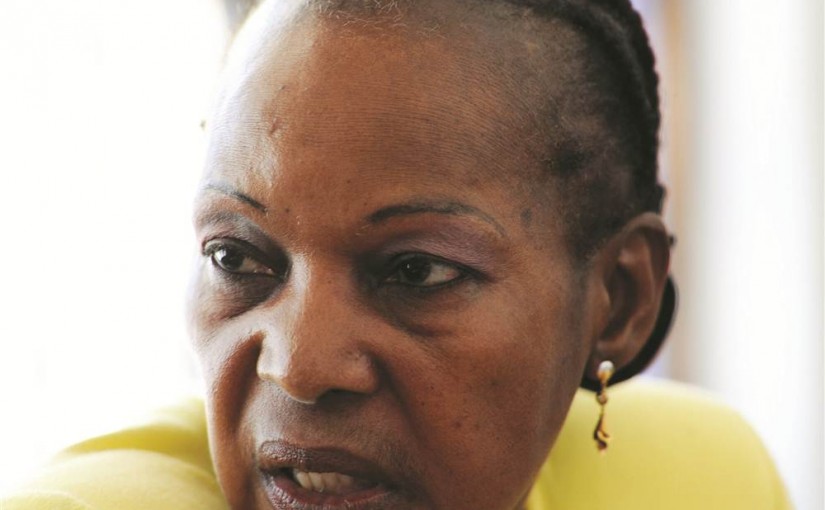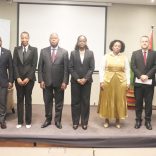Mozambique: MISA protests at harassment of journalists in Cabo Delgado - AIM
Lack of transitional justice caused political crisis in Mozambique – Human Rights League

Alice Mabota, president of the Mozambican Human Rights League, yesterday pointed to the lack of justice in the post-war transition as the main cause of the political and military crisis and said respect for fundamental rights was a “great challenge.”
“If we have this conflict today it is because there was no transitional justice when the first conflict [the 16-year civil war] ended in 1992,” Mabota told during a press conference held in Maputo at a reception for Canada’s Lawyers Without Borders.
Transitional justice consists of judicial and non-judicial measures implemented in order to redress legacies of human rights abuses. Measures “include criminal prosecutions, truth commissions, reparations programs, and various kinds of institutional reforms”.
For Alice Mabota, when the war ended in Mozambique, there was no attention to the need for social reconciliation, a process that could have opened space for the civilian integration of a party that for a long time had been perceived as an enemy, she said, referring to members of the armed wing of the Mozambican National Resistance (Renamo), the main opposition party.
“No one asked how to look at a person upon whom, for a long time, a tag had been imposed. We did not ask how we could change this,” the president of the Human Rights League in Mozambique said, adding that without social justice, peace is impossible.
The participation of civil society in the negotiation process between the government and Renamo was pointed out as an essential element for the achievement of peace and for the country to make progress with respect to human rights.
“We [the civil society] have the task of drawing government attention to implementing justice in a transitional phase,” Mabota said. The experience of Canada’s Lawyers Without Borders would be extremely useful for Mozambique in this phase, she added.
Pascal Paradis, the director general of Canada’s Lawyers Without Borders, said that the adoption of an inclusive dialogue model was important in overcoming political crises, and that experiences of closed talks in other countries had shown such a model of negotiations to be ineffective.
“The more inclusive the process, the easier it is to achieve peace,” Paradis said. It was his understanding that, despite significant advances, the country still had a very long path ahead in the human rights sector.
Central and northern Mozambique have been affected by military violence for more than a year following Renamo’s refusal to accept the results of the 2014 general election, demanding to rule in six provinces where it claims victory in the polls.
At the end of December, after a telephone conversation with the Mozambican President, Filipe Nyusi, Renamo leader Afonso Dhlakama declared a one-week truce as a “goodwill gesture” and later extended its deadline to 60 days, to give space to the negotiations between the parties in Maputo.
Following the truce, Dhlakama and Nyusi also agreed on a new format for peace negotiations which includes a specialized technical group to discuss the decentralization process, one of the main topics on the talks agenda.
Renamo has not ruled out the presence of the international mediation team, which, before leaving Maputo in December at the end of another negotiation round, said it would only come back if specifically invited.
Mozambican civil society organizations continue to demand participation in the peace talks and, although the parties to the conflict have expressed openness, there has still been no formal invitation.












Leave a Reply
Be the First to Comment!
You must be logged in to post a comment.
You must be logged in to post a comment.